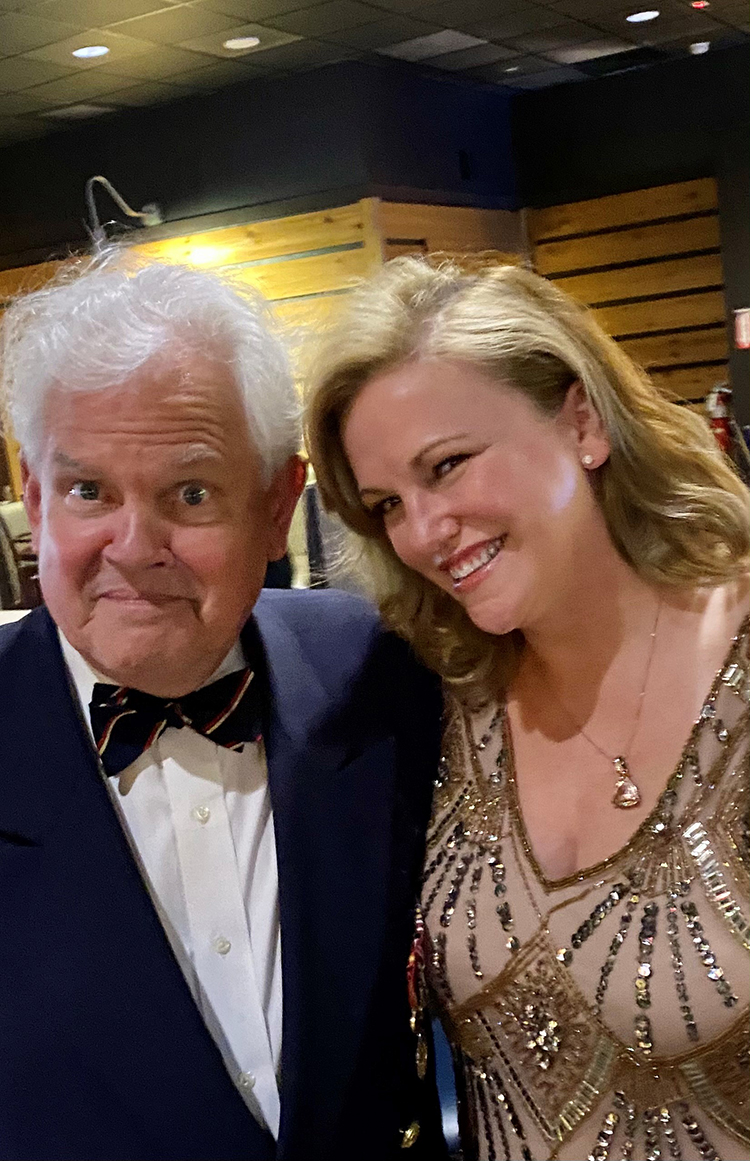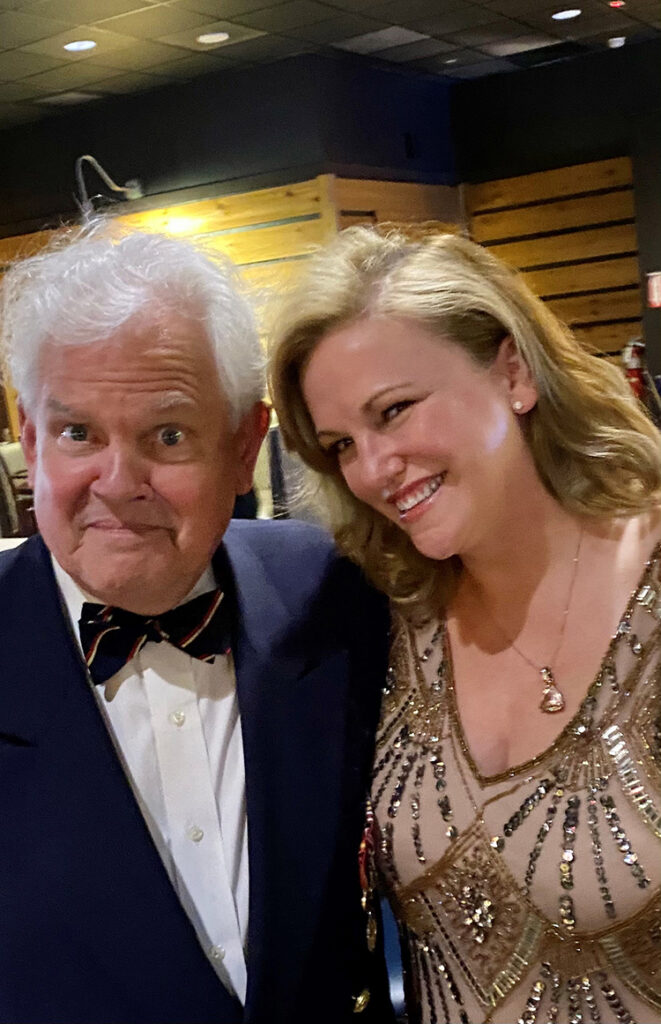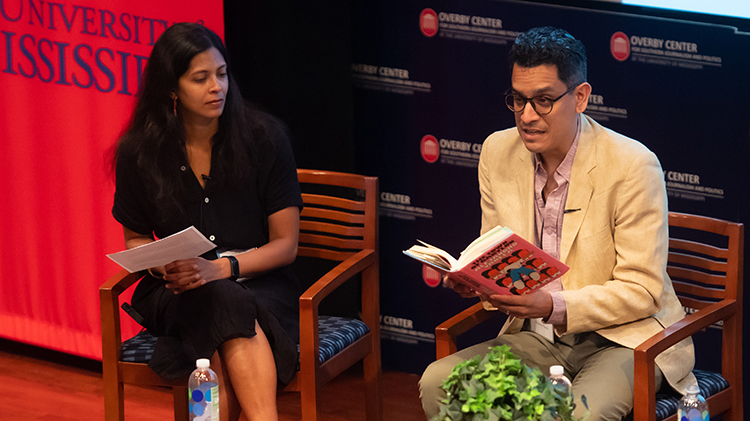
Ron (left) and Misty Feder. Submitted photo
As native Mississippians, Ron Feder and his late wife, Becky, grew up steeped in the folkways of the American South. But it took an extended stay in the Philippines to help them truly appreciate the extraordinary – and decidedly unique – culture of their homeland.
Ever since, the R&B Feder Foundation has made major gifts to the University of Mississippi for the study and preservation of Southern culture. Most recently, Ron Feder and his wife, Misty, recommitted their support of the Oxford Conference for the Book, hosted by the UM Center for the Study of Southern Culture, with a $100,000 gift, matching 2012 and 2002 gifts to the program.
“We are committed to supporting the work of the Center for the Study of Southern Culture,” said Ron Feder, of Ocean Springs. “The Conference for the Book is a favorite of ours because its purpose is to encourage new writers to tell their stories about the South.”
Katie McKee, the center’s director, said the gift will aid planning for future conferences.
“The funds will pay a lot of the travel expenses of the speakers and allow the conference to attract the diverse group of people – writers, publishers, agents and others – who make the OCB such a unique event,” she said. “We are so grateful to the Feder Foundation for this generous support.”
Jimmy Thomas, the conference director, said the gift “demonstrates an enduring interest in the power of the written word to bring diverse people together for meaningful discussion.”
A Vicksburg native, Ron Feder graduated from Ole Miss in 1974 with a bachelor’s degree in political science. He met Becky, his future wife, in college and appealed to her to move cross-country when he joined the U.S. Air Force in 1974.
The two married in 1975, lived for a while in the Washington, D.C., area, then returned to Oxford when Feder enrolled in the School of Law.
“It was during law school that I learned that the CSSC had been formally established a year earlier,” Feder said. “Becky and I did not really pay attention at that time because, well, we figured we knew enough about Southern culture; we had been living it most of our lives.
“It was not until we journeyed 9,000 miles to the Philippines, on the far edge of the Western Pacific, that we realized the peculiar wonder of Southern culture.”
Having rejoined the Air Force as a judge advocate upon graduating from law school in 1981, Feder was stationed, along with Becky and their children, at Clark Air Base in the Philippines. Fortunately, the couple was able to enjoy the blues-tinged sounds of home once a week when the Armed Forces Broadcast Network began carrying the “Highway 61” radio program, created by the CSSC and its former director Bill Ferris.
“That’s when the CSSC became important to us and literally forced us to choose between a career that could take us all over the world or a return to sweet home Mississippi,” said Feder, who devoted 34 years to active and reserve Air Force service, including a four-month tour of duty in Baghdad in 2006.
They chose Mississippi, of course, and Feder soon settled into a successful private law practice in Ocean Springs. After buying a second home in Oxford in 2001, the couple reached out to Ann Abadie, then the center’s associate director, and offered assistance where it was needed most.
“She told me about the Conference for the Book, and we made our initial 10-year commitment to that program in 2002,” Feder said.
Becky Feder died in October 2015. Ron Feder married Misty Shaw two years later, and she shares his love for all things Southern.
“We have now renewed our commitment for another 10 years because we appreciate the great work the conference has done over the years, celebrating the lives and works of great southern writers like Eudora Welty, Walker Percy, Flannery O’Connor, Larry Brown and Barry Hannah,” Shaw-Feder said.
An earlier $100,000 gift from the Feder Foundation established the CSSC’s Music of the South Endowment. Additionally, Feder himself contributed his time to the university as chair of the center’s advisory board.
He considers the center as one of UM’s flagship programs and one that truly distinguishes it from other colleges and universities in this country. After all, as he began to realize during their time in the Philippines, the American South, although it continues to endure, may not always prevail.
“We could see that it was slowly homogenizing into the larger, blander American culture,” he recalled. “How wonderful, we thought, that the CSSC is documenting and studying the hows and whys of the South’s cultural landscape before it all disappears into the larger American melting pot.”
By Bill Dabney





